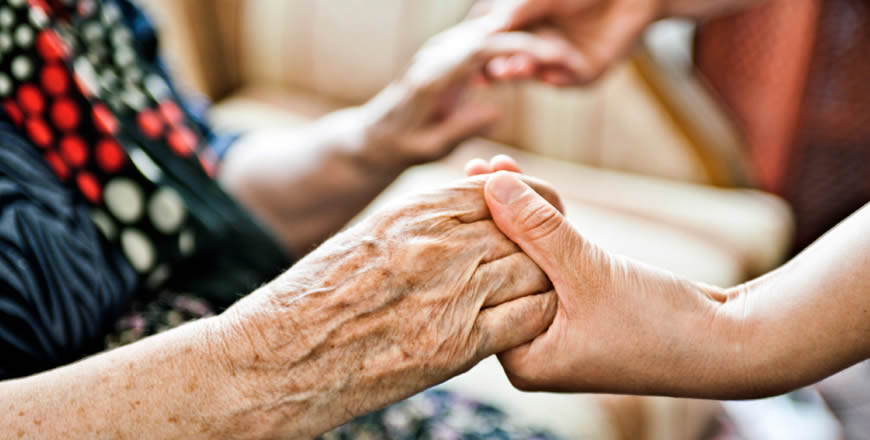ElderFriends is a volunteer-based program that provides companionship, outreach, and advocacy services to isolated older adults throughout Seattle and King County. By facilitating regular friendly visits, they strive to meet the emotional needs of isolated older adults, helping them to live a full life, in their own homes, for as long as possible. This is a critical enterprise, as a 2015 study showed that loneliness is the equivalent of smoking 15 cigarettes per day!
From 2011 through 2015, I had an ElderFriend who we’ll call Ann for privacy purposes. Ann and I got together twice a month on average to go out to eat, attend concerts, or participate in other local events together. She was an absolute kick in the pants and I loved our time together. An example of her joie de vivre was the time she met me at my office for one of our building’s summertime lunchtime concerts. She wanted to dance, so dance we did! She also wanted to dance with several men in attendance and wasn’t shy in asking. More than one of my friends declared they wanted to be like Ann when they grew up.
Towards the end of Ann’s life, her exuberance was tampered by medical problems. She stopped participating in many of the activities she loved and spent more time at the doctor. She suffered from depression. Her needs grew, and I wanted to help as much as I could, but also knew the rules that ElderFriend volunteers were supposed to follow, such as don’t advise in financial or medical matters or become someone’s power-of-attorney. In other words, I couldn’t do things for Ann under the banner of ElderFriends that a family member could. Fortunately, in Ann’s case, she did have two adult children living in the Seattle area who were able to step in to an extent. Even then, I felt Ann leaned on me a great deal for certain things. It made me realize how bad the situation could’ve been had Ann not had her children to help. Who would’ve helped her make decisions and advocate for her when she couldn’t do so herself?
I started to envision a program that was “ElderFriends on steroids,” where the limitations on volunteers were removed. I envisioned a civic organization where younger volunteers, particularly those who sensed they might need such assistance in the future and wanted to “pay it forward,” could step in to be advocates for older adults. In return, once they were older, they could expect the same assistance from a new cohort of younger individuals. They could essentially play the “adult child” role for someone and feel comforted that there would be an “adult child” available to help them if and when the time came. But I also envisioned massive roadblocks, such as financial exploitation and liability concerns. Additionally, I wasn’t so naive to think the ElderFriends rules weren’t there for a reason. So I contacted Kiersten Ware, the founder of ElderFriends in Seattle and currently the Executive Director at Store to Door in Portland, to find out what those reasons were. Here are the two key reasons she cited:
- Liability: Some insurance companies won’t provide insurance to volunteer-based organizations unless such limitations are in place. Volunteers are not providing a professional service, and therefore lines have to be drawn because volunteers don’t carry professional liability insurance. These limitations don’t exist when friends are helping one another. But involving a third party requires establishing boundaries. Since older adults are a target for exploitation, they have reason to be suspect of others.
- Volunteer Burnout: Many older adults live alone, are lonely, and have no network of support. Their needs are incredibly high. If boundaries aren’t put in place, volunteers could potentially overextend themselves. They run the risk of becoming a chore worker or caregiver. Ware said she has observed this happening over the course of her career in the elder care field.
So if “ElderFriends on steroids” won’t work, what will? While an infinite array of medical and social services exist, the void is still the ‘decisional/advocate’ piece, i.e., someone to be the project manager and navigate difficult situations for older adults without family or friends to help them. Ware said she wished she had an answer, but doesn’t; over the past 25 years of her career, people have been proposing ideas but progress has been limited. She said there are systemic cultural problems at play–ageism is rampant, and the denial of death and aging makes people loathe to think about these problems. Additionally, Americans are fiercely independent and shy away from communal living situations that could help them. She said she foresees that the Boomer demographic is not going to sit silently by, however, and hopes they might find answers to this problem.
So what’s my take-away from all this? Barring policy change that increases the pool and reduces the cost of professional health advocates and geriatric care managers, it all comes back to building your support network as best you can. People who foresee themselves aging without familial support need to have active conversations with their friends about what each is willing to do for the other before something happens. Join villages or cohousing. Be as social as you can. Be proactive. And hope for the best. If you have other ideas, I’d love to hear about them in the comments section. Thanks!
